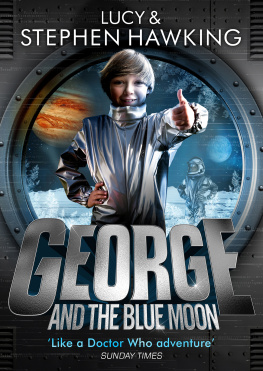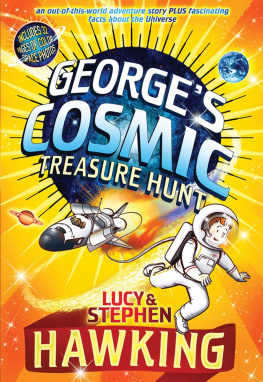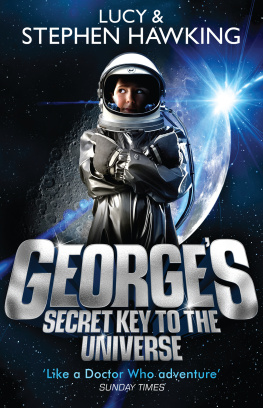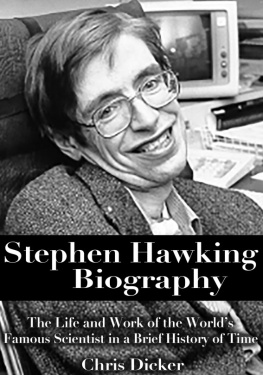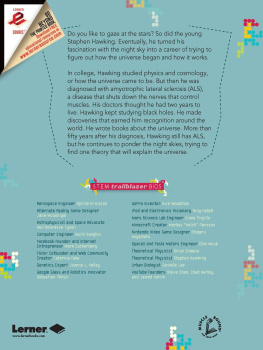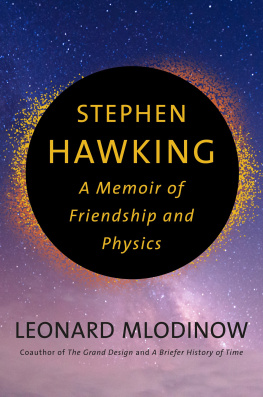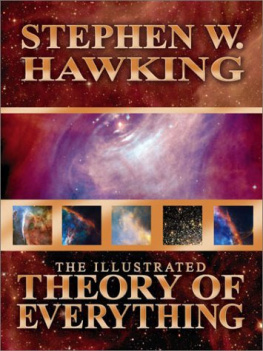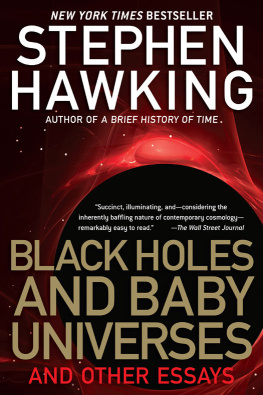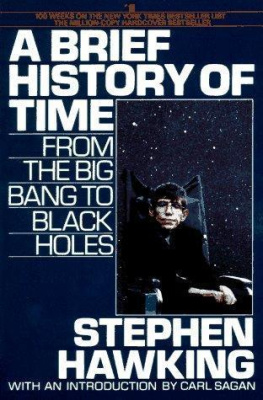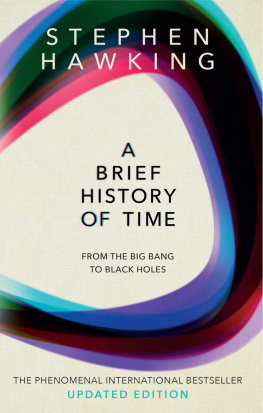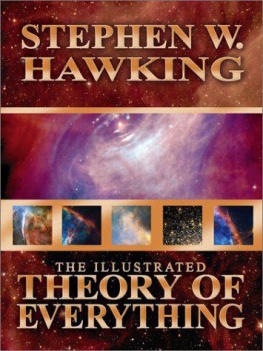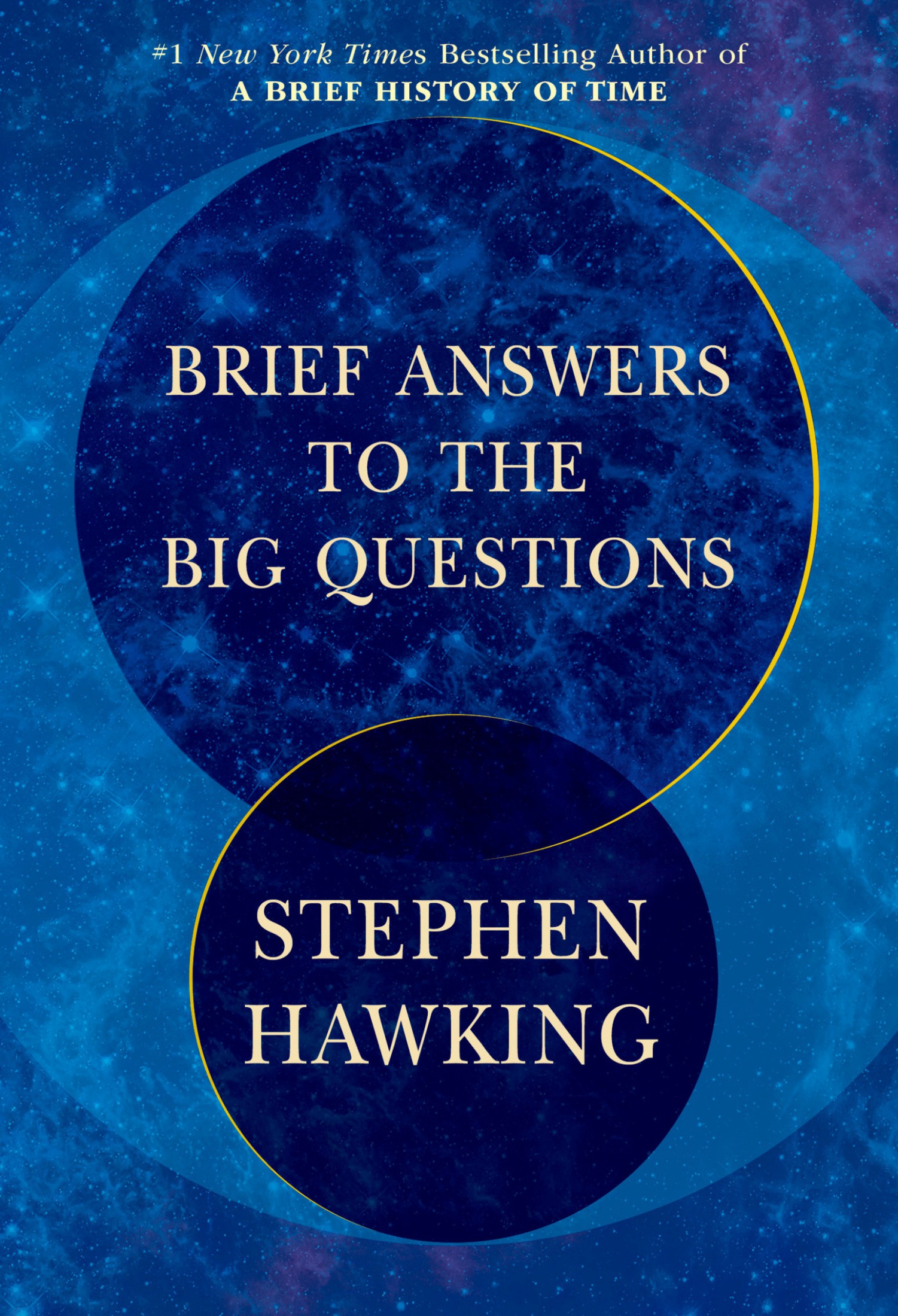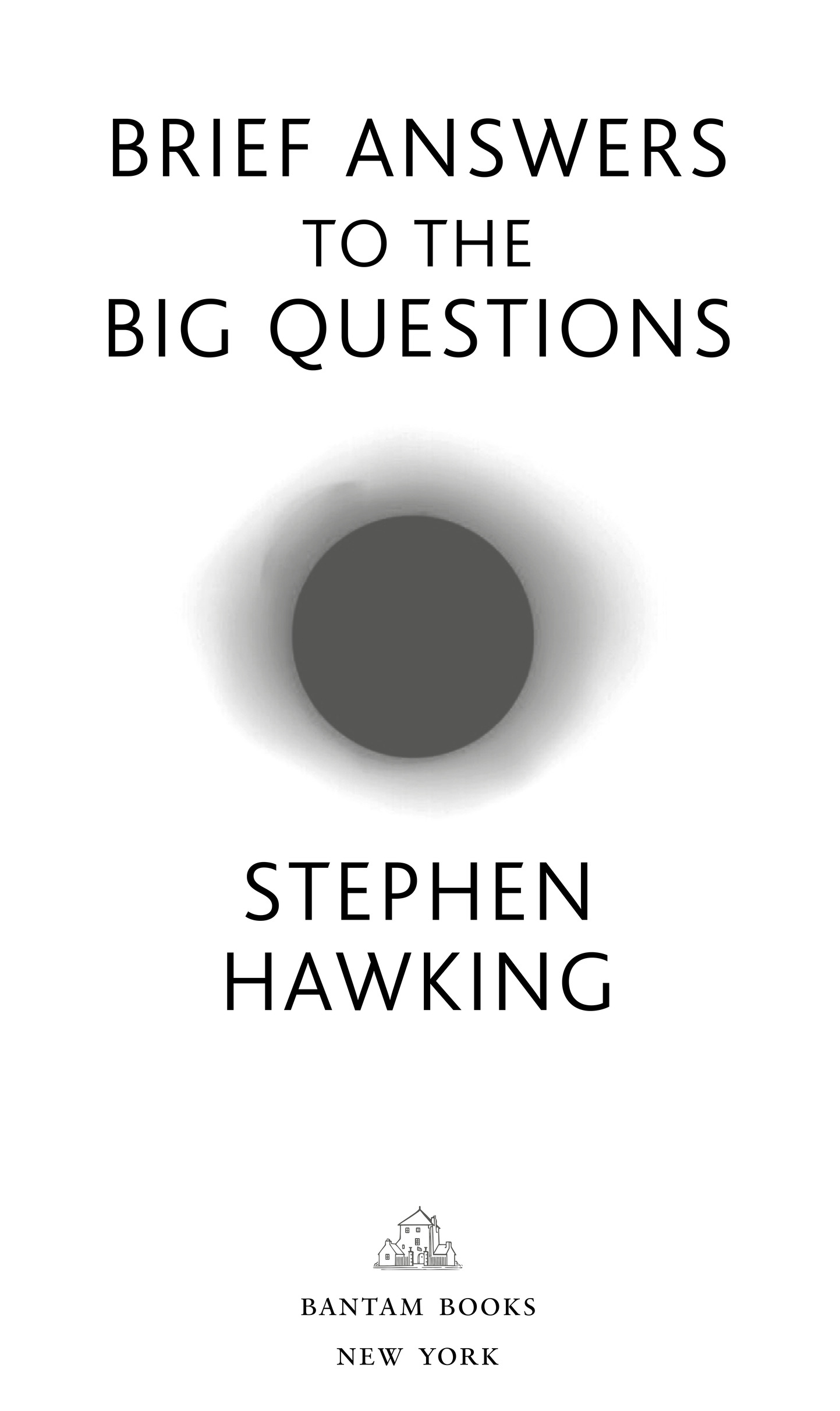Stephen Hawking was regularly asked for his thoughts on the big questions of the day by scientists, tech entrepreneurs, senior business figures, political leaders and the general public. Stephen maintained an enormous personal archive of his responses, which took the form of speeches, interviews and essays.
This book draws from this personal archive and was in development at the time of his death. It has been completed in collaboration with his academic colleagues, his family and the Stephen Hawking Estate.
A percentage of the royalties will go to the Motor Neurone Disease Association and the Stephen Hawking Foundation.
Foreword
Eddie Redmayne
The first time I met Stephen Hawking, I was struck by his extraordinary power and his vulnerability. The determined look in his eyes coupled with the immobile body was familiar to me from my researchI had recently been engaged to play the role of Stephen in The Theory of Everything and had spent several months studying his work and the nature of his disability, attempting to understand how to use my body to express the passage of motor neurone disease over time.
And yet when I finally met Stephen, the icon, this scientist of phenomenal talent, whose main communication was through a computerised voice along with a pair of exceptionally expressive eyebrows, I was floored. I tend to get nervous in silences and talk too much whereas Stephen absolutely understood the power of silence, the power of feeling like you are being scrutinised. Flustered, I chose to talk to him about how our birthdays were only days apart, putting us in the same zodiacal sign. After a few minutes Stephen replied, Im an astronomer. Not an astrologer. He also insisted that I call him Stephen and stop referring to him as Professor. I had been told
The opportunity to portray Stephen was an extraordinary one. I was drawn to the role because of the duality of Stephens external triumph in his scientific work and the internal battle against motor neurone disease starting in his early twenties. His was a unique, complex, rich story of human endeavour, family life, huge academic achievement and sheer defiance in the face of all obstacles. While we wanted to portray the inspiration, we also wanted to show the grit and courage involved in Stephens life, displayed both by him and by those who cared for him.
But it was equally important to portray that side of Stephen which was pure showman. In my trailer I ended up having three images that I referred to. One was Einstein with his tongue out, because theres that similar playful wit with Hawking. Another was the Joker in a pack of cards whos a puppeteer, because I feel Stephen always had people in the palm of his hand. And the third was James Dean. And that was what I gained from seeing himthe glint and the humour.
The greatest pressure in playing a living person is that you will have to account for your performance to the person you have portrayed. In Stephens case, the accounting was also to his family, who had been so generous to me during my preparation for the film. Before Stephen went into the screening, he said to me, I will tell you what I think. Good. Or otherwise. I replied that if it was otherwise perhaps he could just say otherwise and spare me the excoriating details. Generously, Stephen said he had enjoyed the film. He was moved by it, but famously he also stated that he thought there should have been more physics and fewer feelings. This is impossible to argue with.
Since The Theory of Everything, I have stayed in contact with the Hawking family. I was touched to be asked to give a reading at Stephens funeral. It was an incredibly sad but brilliant day, full of love and joyful memories and reflections on this most courageous of men, who had led the world in his science and in his quest to have disabled people recognised and given proper opportunities to thrive.
We have lost a truly beautiful mind, an astonishing scientist and the funniest man I have ever had the pleasure to meet. But as his family said at the time of Stephens death, his work and legacy will live on and so it is with sadness but also great pleasure that I introduce you to this collection of Stephens writings on diverse and fascinating topics. I hope you enjoy his writings and, to quote Barack Obama, I hope Stephen is having fun up there among the stars.
Love
Eddie
An Introduction
Professor Kip S. Thorne
I first met Stephen Hawking in July 1965, in London, England, at a Conference on General Relativity and Gravitation. Stephen was in the midst of his PhD studies at the University of Cambridge; I had just completed mine at Princeton University. Rumours swirled around the conference halls that Stephen had devised a compelling argument that our universe must have been born at some finite time in the past. It cannot be infinitely old.
So, along with some 100 people, I squeezed into a room designed for forty, to hear Stephen speak. He walked with a cane and his speech was a bit slurred, but otherwise he showed only modest signs of the motor neurone disease with which he had been diagnosed just two years earlier. His mind was clearly unaffected. His lucid reasoning relied on Einsteins general relativity equations, and on astronomers observations that our universe is expanding, and on a few simple assumptions that seemed very likely to be true, and it made use of some new mathematical techniques that Roger Penrose had recently devised. Combining all these in ways that were clever, powerful and compelling, Stephen deduced his result: our universe must have begun in some sort of singular state, roughly ten billion years ago. (Over the next decade, Stephen and Roger, combining forces, would go on to prove, ever more convincingly, this singular beginning of time, and also prove ever more convincingly that the core of every black hole is inhabited by a singularity where time ends.)
I emerged from Stephens 1965 lecture tremendously impressed. Not just by his argument and conclusion, but more importantly by his insightfulness and creativity. So I sought him out and spent an hour talking privately with him. That was the beginning of a lifelong friendship, a friendship based not just on common science interests, but on a remarkable mutual sympathy, an uncanny ability to understand each other as human beings. Soon we were spending more time talking about our lives, our loves, and even death than about science, though our science was still much of the glue that bound us together.


